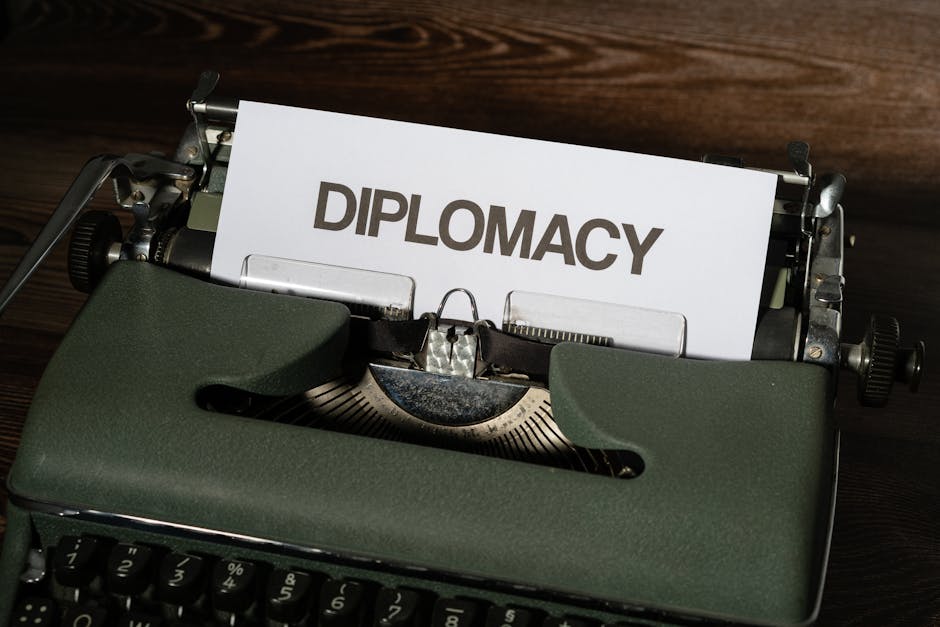Decoding Diplomatic Quality: Unraveling the 7 Little Words That Define International Relations
The world stage is a complex tapestry woven with threads of collaboration, conflict, and compromise. At the heart of navigating this intricate landscape lies diplomacy – the art and practice of conducting negotiations between representatives of groups or states. But what exactly constitutes *quality* in diplomacy? This article delves deep into the essential components, identifying seven key characteristics that define successful diplomatic engagement and contribute to global peace and stability.
The Seven Pillars of Diplomatic Quality
While the specific terminology may vary, the core principles remain consistent. We’ll explore these seven crucial elements, demonstrating their individual and collective impact on the effectiveness of diplomatic efforts.
1. Effective Communication: The Language of Understanding
Effective communication is the cornerstone of any successful diplomatic endeavor. This isn’t simply about fluency in multiple languages, although multilingualism is certainly beneficial. True effective communication encompasses clear articulation, active listening, and the ability to adapt one’s message to diverse audiences. It involves understanding nuances, interpreting unspoken cues, and conveying information in a manner that resonates with the recipient’s cultural background and perspective.
2. Strategic Thinking: Foresight and Planning
Diplomacy isn’t about reacting to events; it’s about anticipating them. Strategic thinking involves proactively identifying potential challenges and opportunities, formulating long-term goals, and developing plans to achieve them. This requires a deep understanding of geopolitical dynamics, an ability to assess risk, and the capacity to adapt strategies in response to changing circumstances. Effective diplomats are forward-thinking, always considering the broader implications of their actions.
3. Cultural Sensitivity: Bridging the Divide
The world is a mosaic of diverse cultures, traditions, and values. Successful diplomacy demands a deep appreciation for these differences, fostering understanding and avoiding misunderstandings stemming from cultural clashes. Cultural sensitivity involves demonstrating respect for other cultures, adapting communication styles appropriately, and avoiding actions or statements that could be perceived as offensive or insensitive.
4. Negotiation Skills: The Art of Compromise
Negotiation is at the core of diplomacy. It’s the ability to engage in discussions, find common ground, and reach mutually acceptable agreements, even in the face of competing interests. Effective negotiation requires patience, perseverance, and the capacity to find creative solutions that satisfy all parties involved. This skill goes beyond mere bargaining; it’s about building trust and fostering long-term relationships.
5. Ethical Conduct: Integrity and Transparency
Maintaining ethical conduct is paramount in diplomacy. It encompasses acting with integrity, transparency, and accountability. Diplomats are expected to uphold the highest moral standards, avoid conflicts of interest, and act in accordance with international law and norms. Ethical conduct builds trust and credibility, crucial for sustaining long-term diplomatic relationships.
6. Conflict Resolution: Mitigating Disputes
Conflict is inevitable in international relations. Diplomats play a critical role in preventing and resolving conflicts peacefully, using mediation, arbitration, and other techniques to find solutions that address the underlying causes of disputes. This requires a deep understanding of conflict dynamics, strong mediation skills, and a commitment to finding peaceful, sustainable resolutions.
7. Adaptability and Resilience: Navigating Uncertainty
The international landscape is constantly shifting, presenting unexpected challenges and setbacks. Successful diplomats are adaptable and resilient, able to adjust their strategies in response to changing circumstances and overcome obstacles without losing sight of their long-term goals. This requires a capacity for learning, innovation, and a strong belief in the power of diplomacy to achieve positive outcomes.

The Interplay of Qualities: A Holistic Approach
These seven qualities are not mutually exclusive; they are interconnected and mutually reinforcing. Effective communication enhances strategic thinking, while cultural sensitivity improves negotiation skills. Ethical conduct strengthens conflict resolution efforts, and adaptability enables diplomats to navigate complex situations successfully. A holistic approach, integrating all seven elements, is essential for achieving truly high-quality diplomacy.

Measuring Diplomatic Quality: Defining Success
Measuring the success of diplomatic efforts is complex, often depending on long-term outcomes that may be difficult to quantify. However, several indicators can be used to assess the quality of diplomatic engagement. These include the achievement of negotiated agreements, the prevention of conflicts, the promotion of cooperation, the strengthening of international relationships, and the fostering of global peace and stability. Qualitative assessments, based on expert opinions and case studies, can also provide valuable insights.
The Future of Diplomatic Quality: Challenges and Opportunities
The 21st century presents new challenges and opportunities for diplomacy. The rise of globalization, technological advancements, and climate change demand innovative approaches to international relations. Diplomats must adapt to these changes, embracing new technologies, fostering collaborative partnerships, and developing strategies to address global challenges effectively. By strengthening their skills in the seven key areas outlined above, diplomats can rise to these challenges and contribute to a more peaceful and prosperous world.

In conclusion, understanding and cultivating these seven qualities – effective communication, strategic thinking, cultural sensitivity, negotiation skills, ethical conduct, conflict resolution, and adaptability – is essential for achieving high-quality diplomacy. These qualities are not merely desirable traits; they are the very foundation upon which successful international relations are built.

